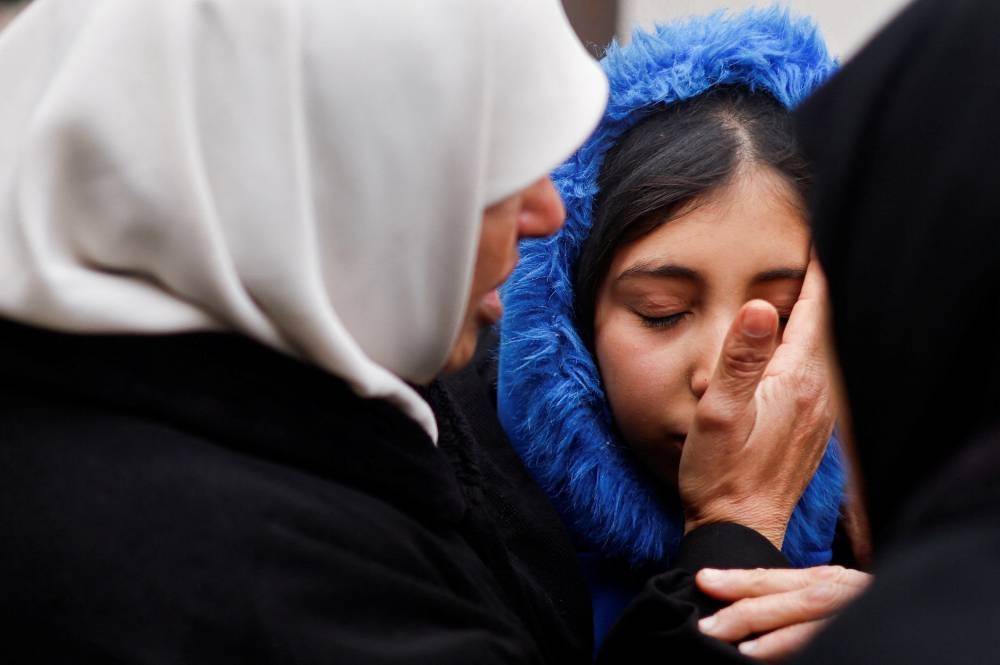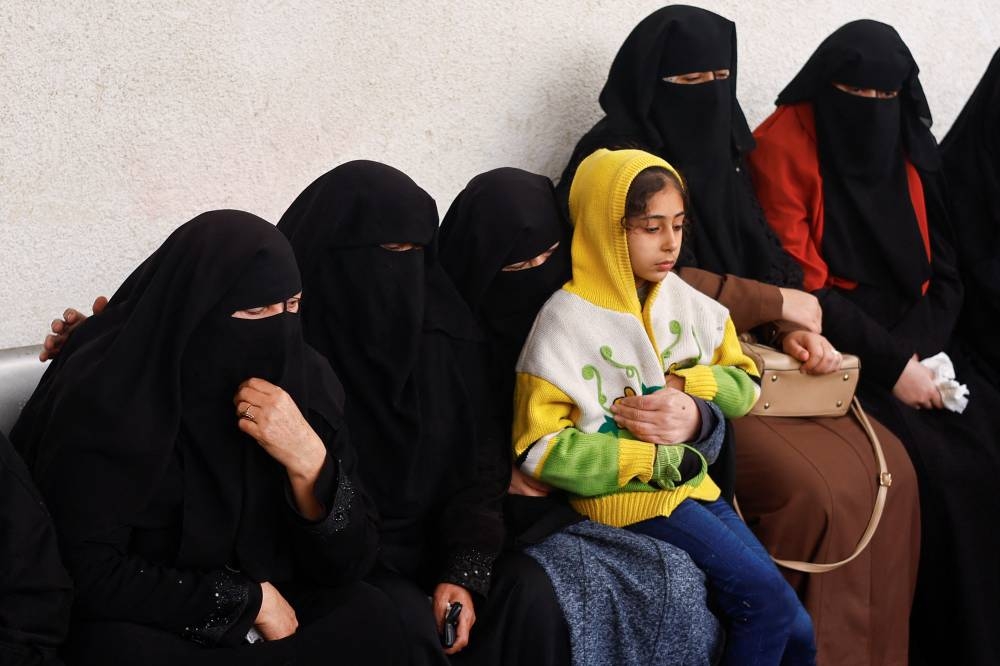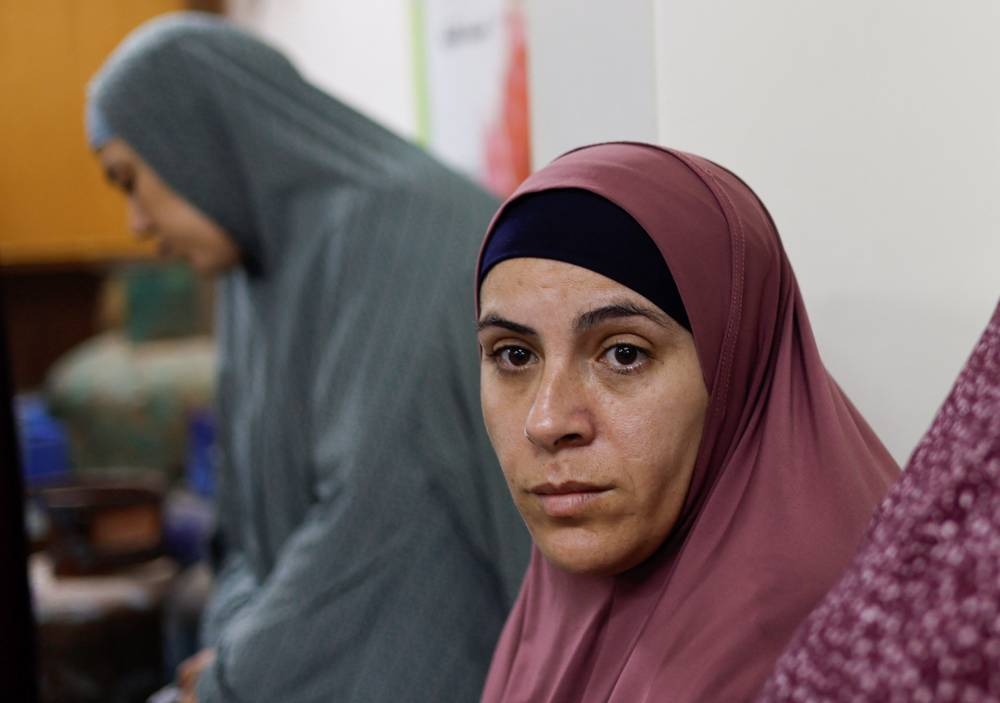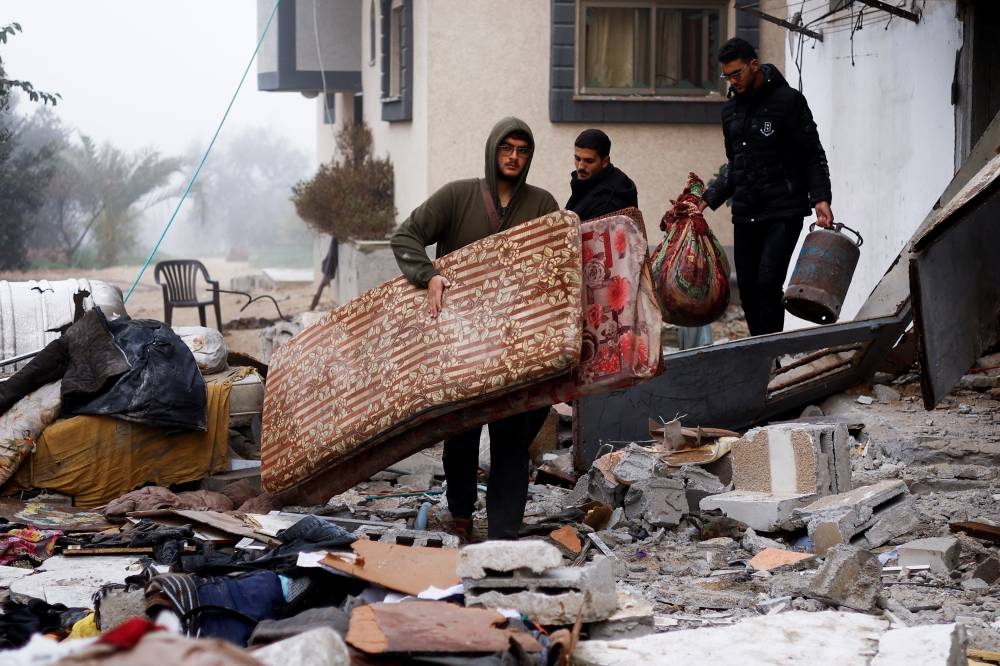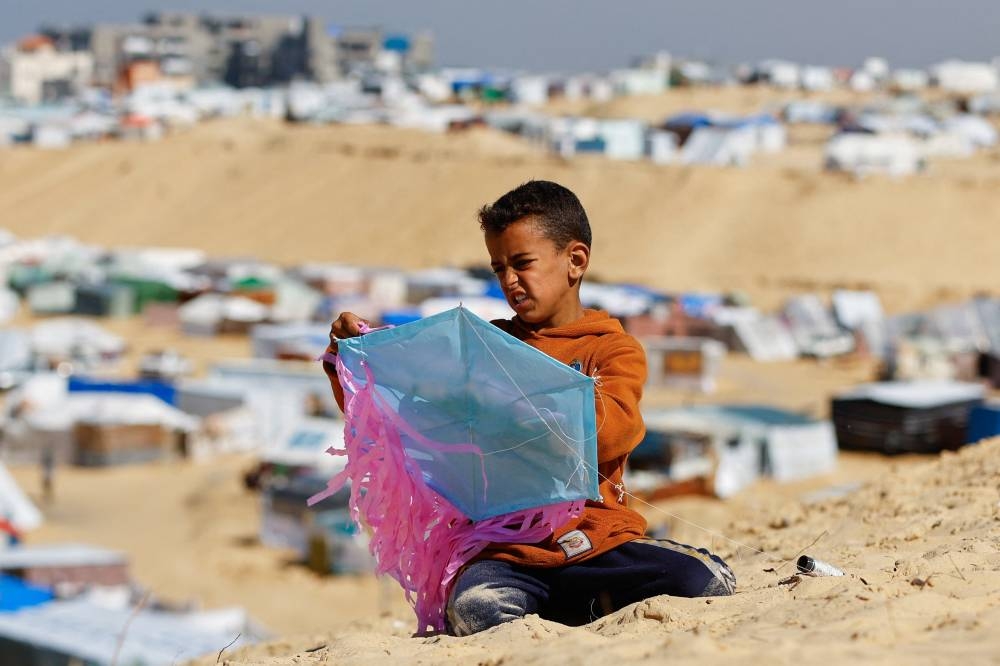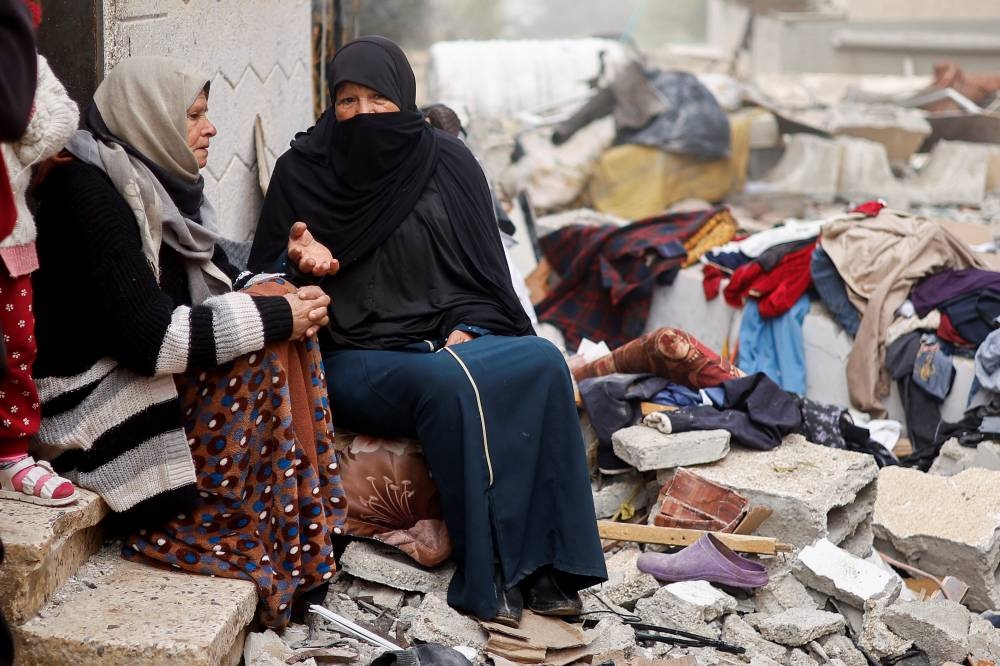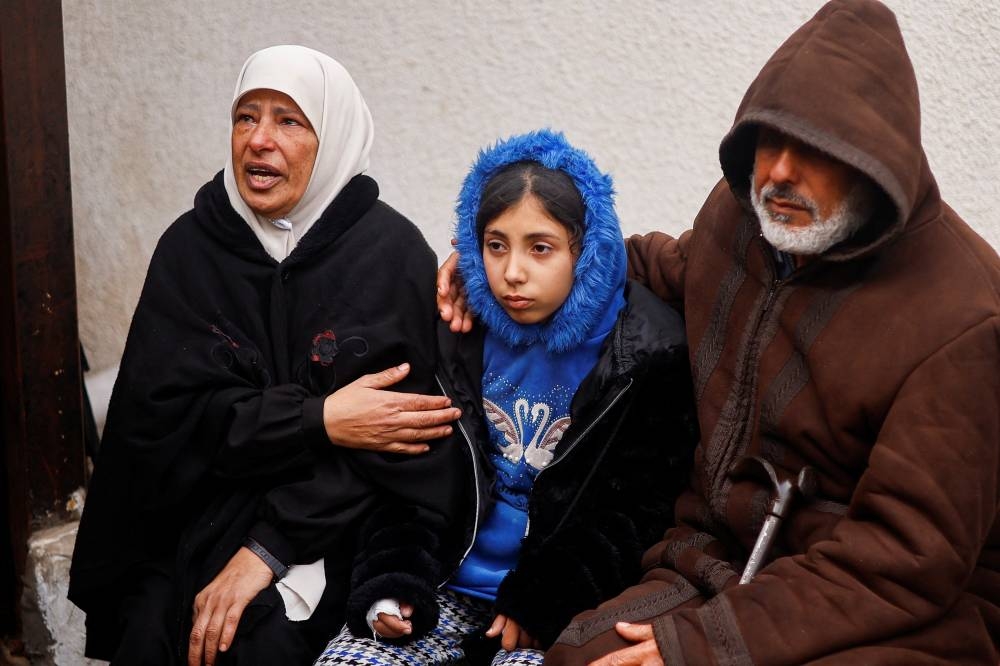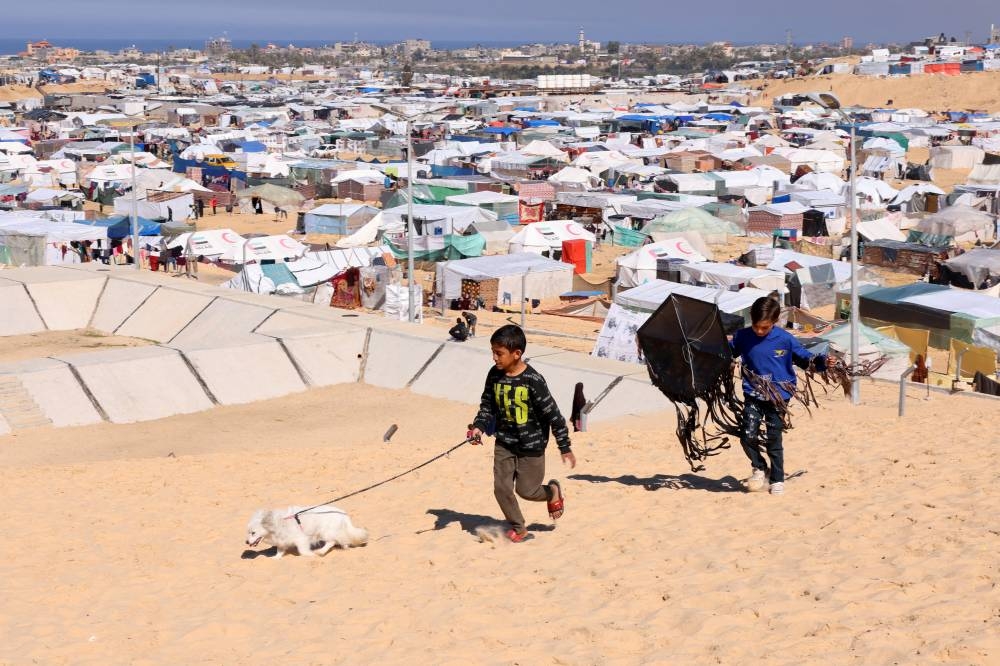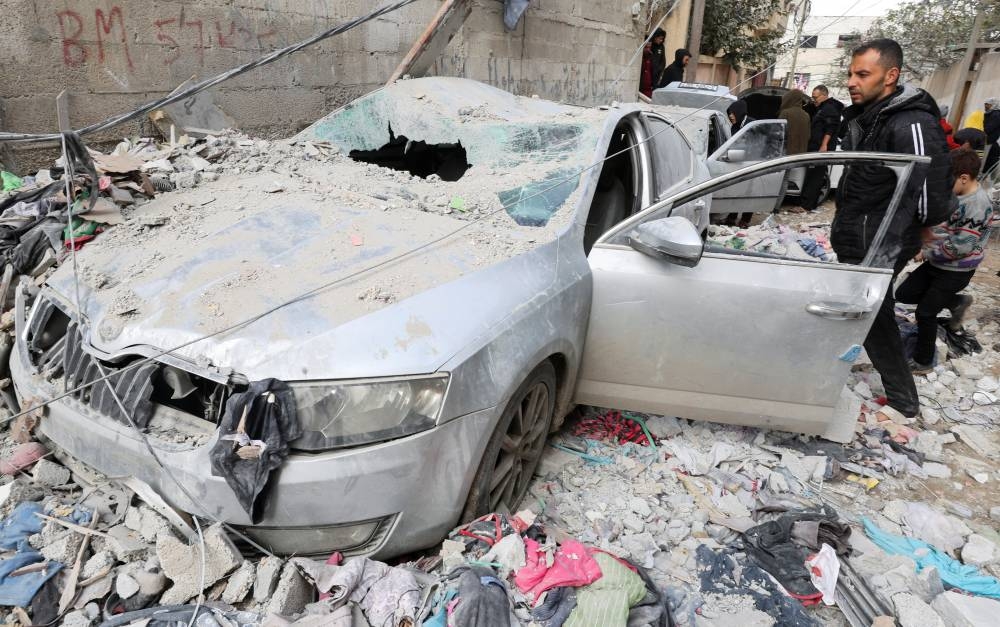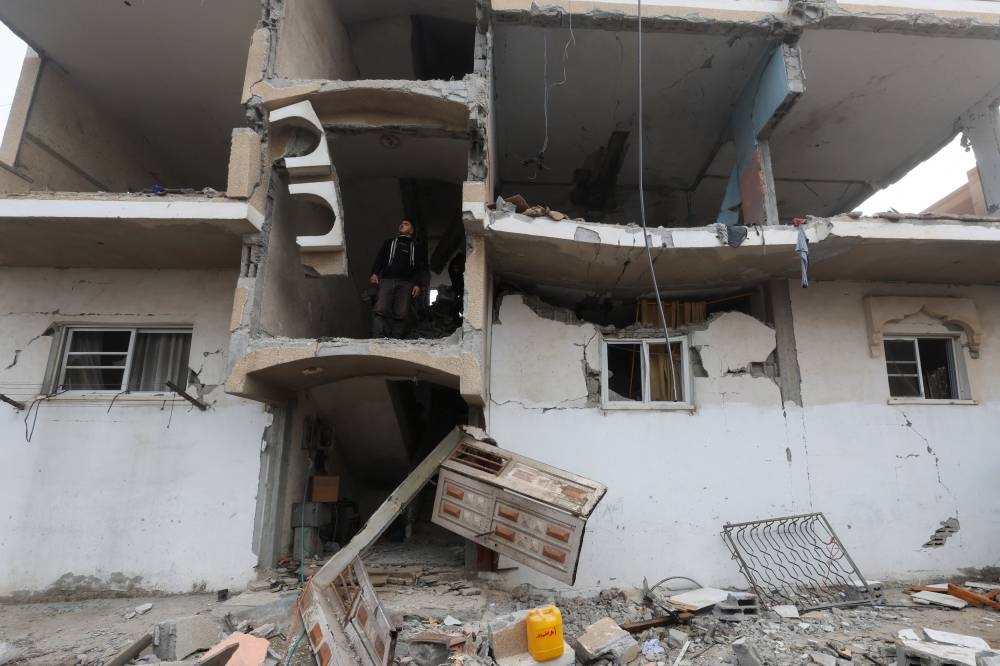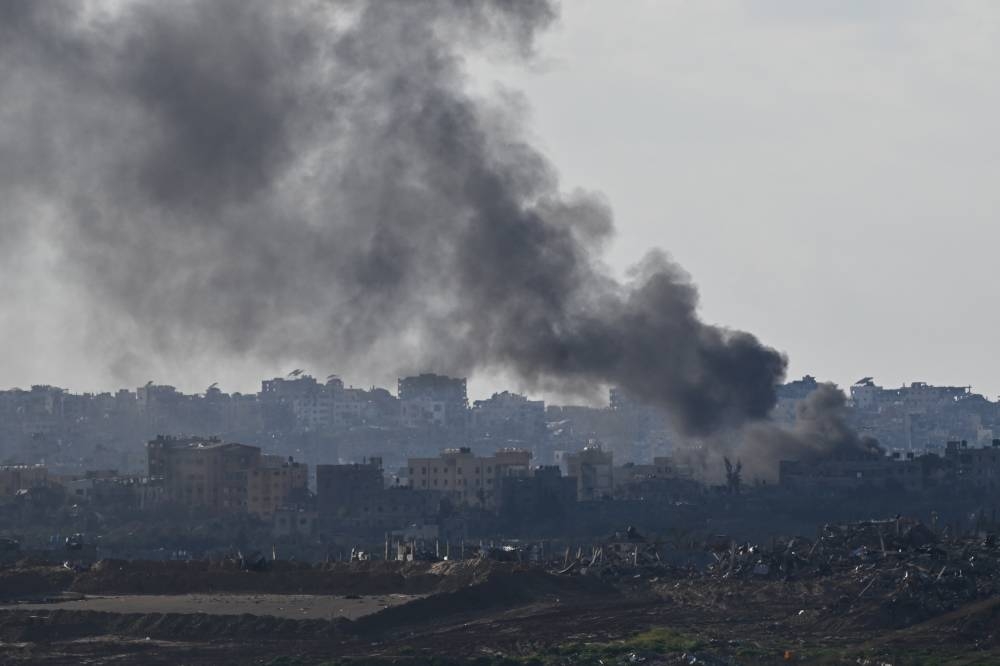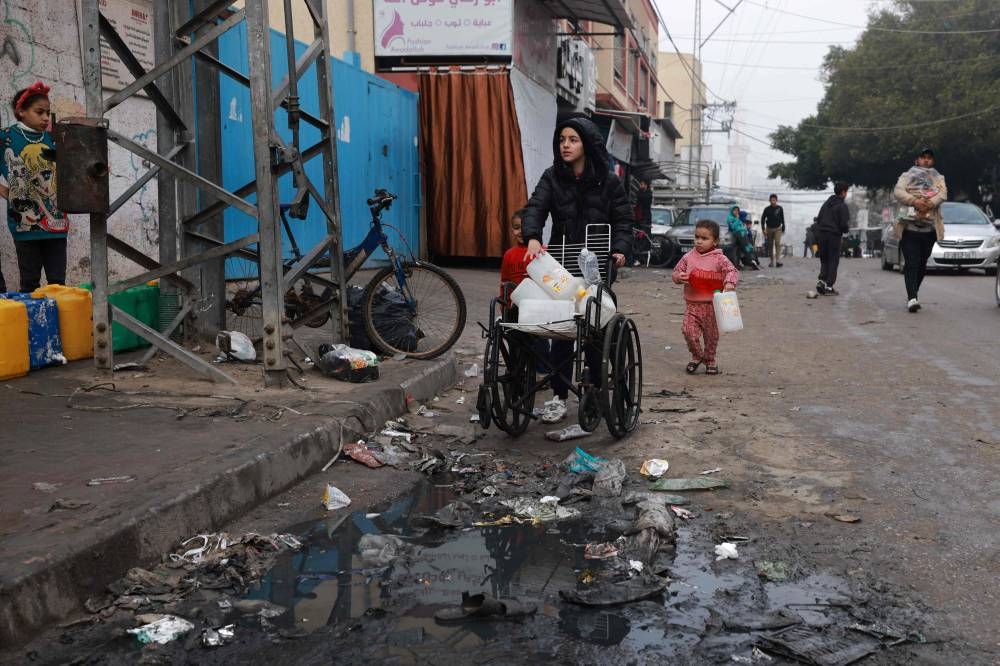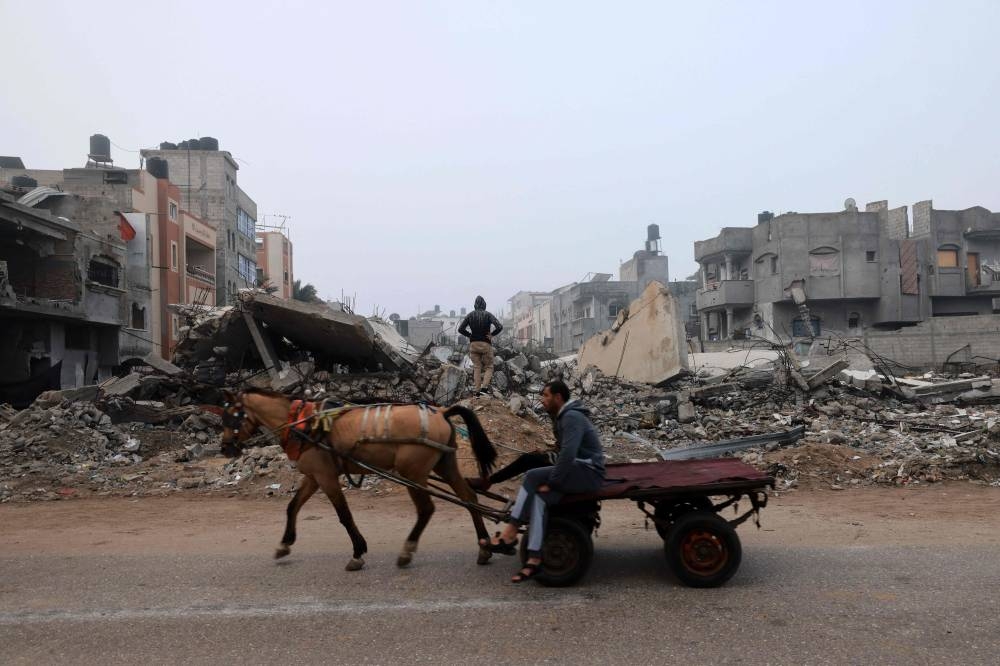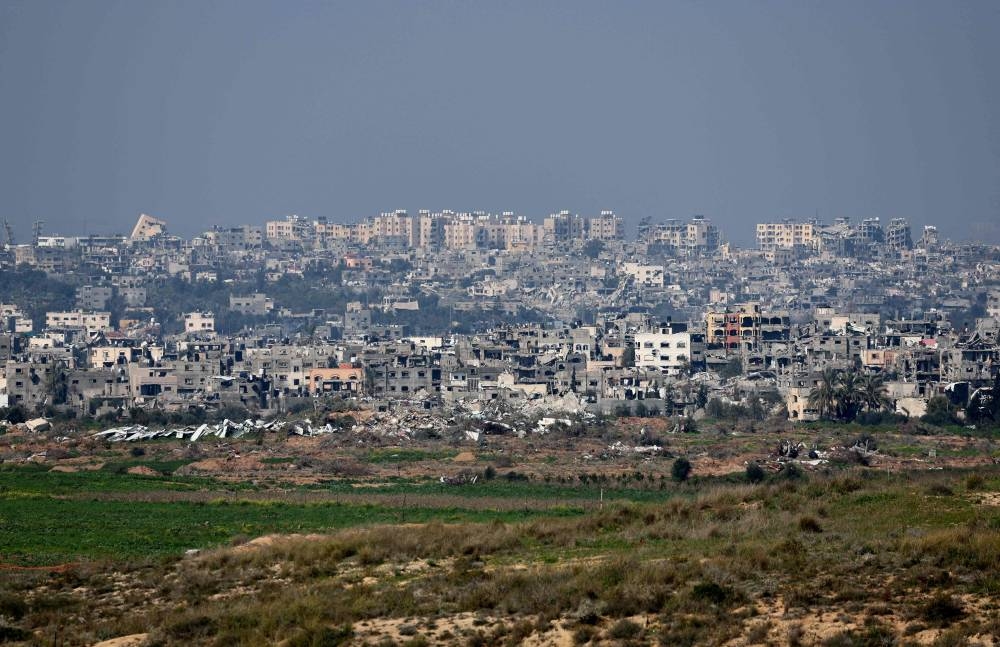- Aid groups warn that Israeli advance into Rafah could kill many trapped Palestinians
- Arab foreign ministers meet in Riyadh to discuss Gaza war
International concern about the fate of hundreds of thousands of displaced Gazans sheltering in Rafah has mounted since Israel threatened a ground assault on the city, on the border with Egypt.
Washington said on Thursday it would not support any Israeli military operation launched in Rafah without due consideration for the plight of civilians, and Biden described Israel's response to the Oct. 7 Hamas attacks as "over the top".
Hours after his remarks, Israeli warplanes flew new sorties over Gaza. Palestinian health officials said at least 15 people had been killed in the air strikes, including eight in Rafah, where over half Gaza's 2.3 million people are now sheltering.
"We were sleeping inside and, when the strike hit, were thrown outside. After that, another rocket hit," said Mohammed al-Nahal, an elderly Palestinian standing beside the rubble of a building that had been hit.
"It destroyed the entire home. My daughter was killed. My daughter, her husband, her son, all were martyred. There are two others in the hospital."
Israel did not immediately comment on the latest air strikes. It says it takes steps to avoid civilian casualties and accuses Hamas militants of hiding among civilians, including at schools, shelters and hospitals. Hamas has denied doing so.
Doctors and aid workers in Rafah are struggling to supply even basic aid and stop the spread of disease.
"No war can be allowed in a gigantic refugee camp," said Jan Egeland, Secretary-General of the Norwegian Refugee Council, warning of a "bloodbath" if Israeli operations expand there.
Gaza's health ministry said on Friday that at least 27,947 Palestinians had been confirmed killed in the conflict, 107 of them in the previous 24 hours, and 67,459 injured.
It says many more could still be buried under the rubble from the Israeli offensive.
The US has this week stepped up efforts to secure a ceasefire in Gaza, but Israeli Prime Minister Benjamin Netanyahu rejected a Hamas proposal that also envisaged the release of hostages held by the Palestinian group.
Though the US is Israel's most important ally, it has urged Israel to scale down its all-out war into a more targeted campaign against Hamas leaders.
In some of his sharpest public criticism to date of Netanyahu's government, Biden told reporters at the White House on Thursday: "I'm of the view, as you know, that the conduct of the response in the Gaza Strip has been over the top."
Biden said he has been pushing for a deal to normalise Saudi Arabia-Israel relations, increase the amount of humanitarian aid reaching Palestinian civilians, and pause fighting for a time to allow the release of hostages taken by Hamas.
"I'm pushing very hard now to deal with this hostage ceasefire," Biden said. "There are a lot of innocent people who are starving, a lot of innocent people who are in trouble and dying, and it's gotta stop."
Hamas had proposed a ceasefire of 4-1/2 months, during which all remaining hostages would go free, Israel would withdraw its troops and an agreement would be reached on an end to the war.
Its offer was a response to a proposal drawn up by US and Israeli spy chiefs with Qatar and Egypt, and delivered to Hamas.
Netanyahu said on Wednesday the terms offered were "delusional" and vowed to fight on, saying victory was just months away.
Hamas says it will not agree to any deal that does not include an end to the war and Israeli withdrawal. Israel says it will not withdraw or stop fighting until Hamas is eradicated.
Hoping to spur peace moves, US Secretary of State Antony Blinken made a lightning trip to the Middle East this week, and a Hamas delegation arrived in Cairo on Thursday for talks with mediators Egypt and Qatar.
Foreign ministers of several Arab states discussed Gaza on Friday at talks in Riyadh at which United Arab Emirates media said the UAE called for more effort to prevent the conflict expanding further across the region.
Syrian state media reported that air defences had responded to "hostile targets" in the vicinity of Damascus, but did not immediately provide details.
Tensions are also high on the border between Israel and Lebanon. Sirens sounded in northern Israeli towns and Israel's military said it had intercepted a "suspicious aerial target" offshore from the city of Haifa.
A Lebanese security source said two unarmed surveillance drones had been launched from Lebanon over Israeli territory before returning. The armed Lebanese group Hezbollah said it had hit "spying systems" in northern Israel but did not say what weapons were used.

